Professor LIN, Jionghao

Professor LIN, Jionghao
林炯昊
Affiliated Assistant Professor in the Human-Computer Interaction Institute (Courtesy, Carnegie Mellon University)
Research Fellow in the Centre for Learning Analytics (Courtesy, Monash University)
Technology and Outreach Officer (International Artificial Intelligence in Education Society)
Assistant Professor
Academic Unit of Mathematics, Science, and Technology
Postdoc (Carnegie Mellon University, Human-Computer Interaction Institute)
PhD (Monash University, Department of Human Centred Computing)
[javascript protected email address]
Room 216, Runme Shaw Building
Areas- Learning Analytics
- Artificial Intelligence in Education
- Human-Centred Computing
Research Expertise
- Learning Sciences
- Technology-enhanced Learning
- Data Sciences and Digital Humanities
- Information Science and Management
- Collaborative Learning
Prospective PhD/ EdD/ MPhil Applications
I am available to supervise PhD/MPhil students and would welcome enquiries for supervision.
Links
Areas of Expertise
**I am primarily seeking PhD applicants with a background in Human-Computer Interaction, Human-Centred AI, or Data Mining. If you are interested in pursuing a PhD, MPhil, or RA position with me, please fill out the Expression of Interest (EOI) Form located at the left of this page (i.e., EOI Form: PhD/MPhil/RA under the 'Links' section).**
Research Interests
Learning Sciences, Learning Analytics, Artificial Intelligence in Education, Human Computer Interaction, Educational Data Mining, Machine Learning for Education, Learning Technologies, Intelligent Tutoring Systems, Automated Feedback, Discourse Analysis
Awards
- Best student paper award, 17th International Conference on Educational Data Mining (2024)
- Best paper award, 26th International Conference on Human-Computer Interaction (2024)
- Best paper award, 21st ACM International Conference on Multimodal Interaction (2019)
- Best demo award, 24th International Conference on Artificial Intelligence in Education (2023)
Best paper award nominee, 18th International Conference on Educational Data Mining (2025)
- Best demo (interactive event) award nominee, 25th International Conference on Artificial Intelligence in Education (2024)
- Seed grant award from Carnegie Mellon University (CMU), featured in CMU News
- Journal paper featured by a newsletter about AI in Education on LinkedIn
- Conference paper featured by Campus Morning Mall (an Australian newspaper for higher education)
Publications
My complete publication record is available via my Google Scholar profile: [https://scholar.google.com/citations?user=l7oy8qMAAAAJ&hl=en]
Selected Publications
Does Informativeness Matter? Active Learning for Educational Dialogue Act Classification
International Conference on Artificial Intelligence in Education (AIED), 2023
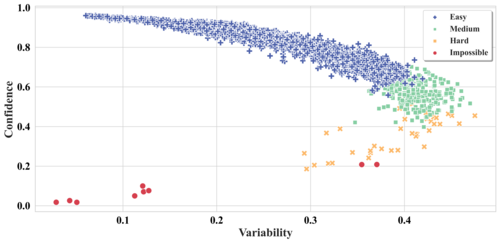
Robust Educational Dialogue Act Classifiers with Low-Resource and Imbalanced Datasets
International Conference on Artificial Intelligence in Education (AIED), 2023
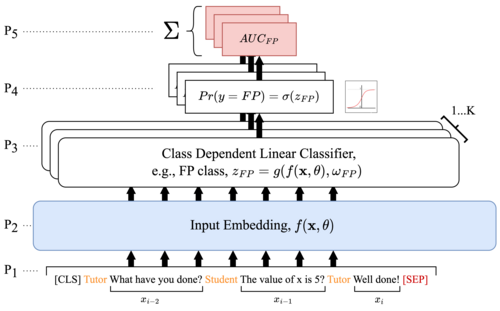
On the Role of Politeness in Online Human–human Tutoring
British Journal of Educational Technology, 2024
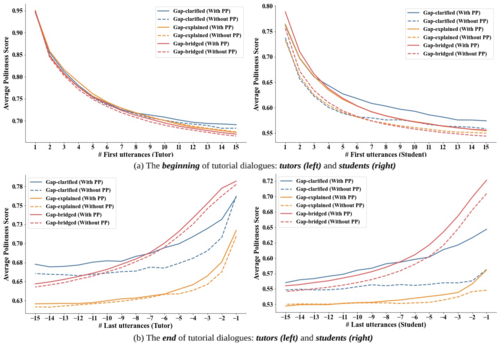
I Know What You Know: What Hand Movements Reveal About Domain Expertise
ACM Transactions on Interactive Intelligent Systems, 2021
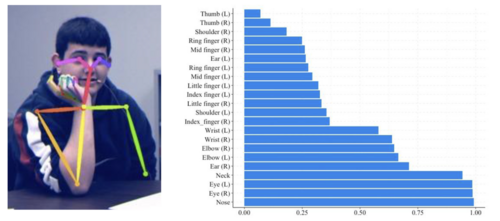
International Conference on Educational Data Mining, 2024
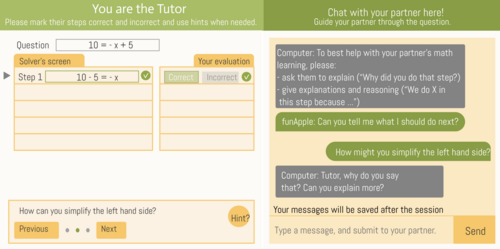
Professional Community Services
Program Committee Member for Academic Conferences (Selected):
- International Learning Analytics and Knowledge Conference
- International Conference on Artificial Intelligence in Education
- International Conference on Educational Data Mining
- ACM Learning at Scale Conference
- ACM CHI conference on Human Factors in Computing Systems
- 27th International Conference on Pattern Recognition
Invited Reviewer for Academic Journals (Selected):
- International Journal of Artificial Intelligence in Education
- Journal of Learning Analytics
- Journal of Educational Data Mining
- British Journal of Educational Technology
- IEEE Transactions on Learning Technologies
- Computers and Education
- International Journal of Human-Computer Interaction
- Neurocomputing
Other Professional Community Services (Selected):
- Member of the Society for Learning Analytics Research (2020 - Current)
- Member of the International Artificial Intelligence in Education Society (2020 - Current)
- Member of the Association for Computing Machinery, ACM (2020 - Current)
- Mentor of the LearnLab Summer School at Carnegie Mellon University (2024)
- Mentor of the Doctoral Consortium at the 25th International Conference on Artificial Intelligence in Education (2024)
- Co-organizer of the Conference Workshop From Data to Discovery: LLMs for Qualitative Analysis in Education at the 15th International Learning Analytics and Knowledge Conference (2025)
- Co-organizer of the Conference Workshop Generative AI for Learning Analytics (GenAI-LA): Exploring Practical Tools and Methodologies at the 14th International Learning Analytics and Knowledge Conference (2024)
- Committee Member at the International Consortium ALTTAI (the Advanced Learning, Theories, Technologies, Applications, and Impacts Consortium), initiated by the Institute for Intelligent Systems at the University of Memphis, USA (2023 - Current)
- Student Volunteer of the 24th International Conference on Artificial Intelligence in Education (2023)
- Student Volunteer of the 13th International Learning Analytics and Knowledge Conference (2023)
- Student Volunteer of the Conference on Empowering Learners for the Age of AI (2021)
Others
Teaching List (2019-present)
- TDLL7355 Advanced Topics in Learning Analytics and Artificial Intelligence in Education (Graduate). Faculty of Education, The University of Hong Kong, 2025-26, Semester 2

- EDUR8600 Advanced Topics in Artificial Intelligence in Education (PhD/EdD/Mphil). Faculty of Education, The University of Hong Kong, 2025-26, Semester 1

- MLIM7349 / TDLL7349 Data Science and Learning Analytics (Graduate). Faculty of Education, The University of Hong Kong, 2025-26, Semester 1
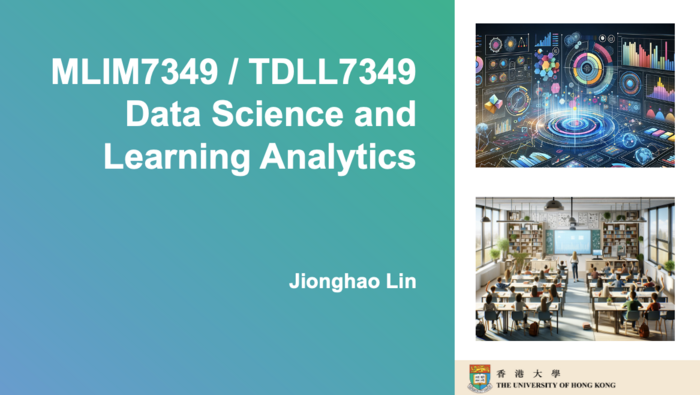
- BSIM4024 Fundamentals of Object-Oriented Programming (Undergraduate). Faculty of Education, The University of Hong Kong, 2024-25, Semester 2
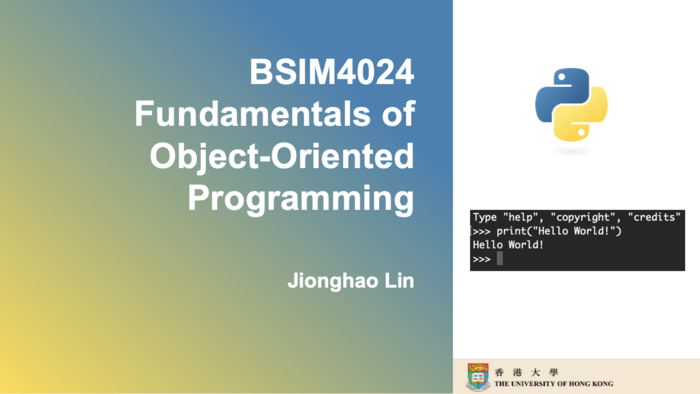
- BSDS3003 Data processing and visualization (Undergraduate). Faculty of Education, The University of Hong Kong, 2024-25, Semester 2
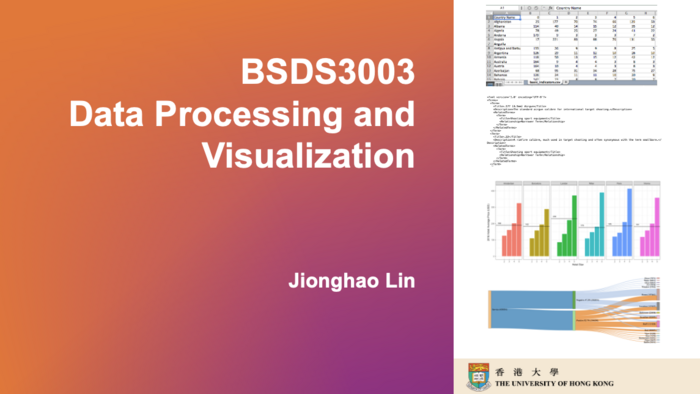
- HCI05-899 Learning Analytics and Educational Data Science (Graduate level, Guest Lecturer). Department of Human Computer Interaction Institute, Carnegie Mellon University (Pittsburgh, USA) 2023, Fall Semester
- FIT3179 Data Visualization (Undergraduate). Faculty of Information Technology, Monash University (Clayton, Australia), 2022, Semester II
- FIT5145 Introduction to Data Science (Postgraduate). Faculty of Information Technology, Monash University (Clayton, Australia), 2022, Semester I & II
- FIT5097 Business Intelligent Modelling (Postgraduate). Faculty of Information Technology, Monash University (Caulfield, Australia), 2019, Semester II
- FIT5202 Data Processing for Big Data (Postgraduate). Faculty of Information Technology, Monash University (Caulfield, Australia), 2019, Semester II
- FIT5125 IT Research Methods (Postgraduate). Faculty of Information Technology, Monash University (Caulfield, Australia), 2019, Semester II
Management of Research Team
1. Academic Independence: Research autonomy is highly valued, with no strict expectations regarding working or resting hours.
2. Regular Meetings: Attendance at regular individual meetings is required. Reports (note or slides) can be freely formatted.
3. Internal submission deadline: Full drafts should be submitted at least 7 days before the final deadline, which is the internal deadline to allow enough time for review.
4. Open communication: Group members can provide feedback—anonymously if needed—on group dynamics, project direction, or any other concerns. This open communication channel ensures that everyone feels heard and valued.
5. Diversity, Equity and Inclusion: An inclusive group is one where everyone feels the sense of belonging. There is a zero-tolerance policy for discrimination, harassment, or any form of misconduct.
